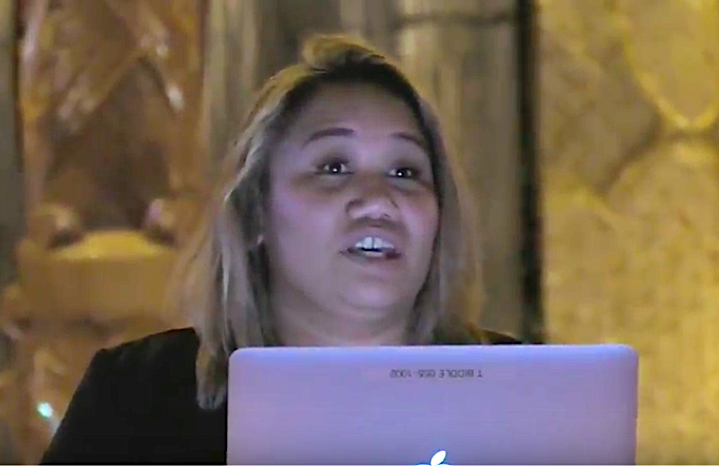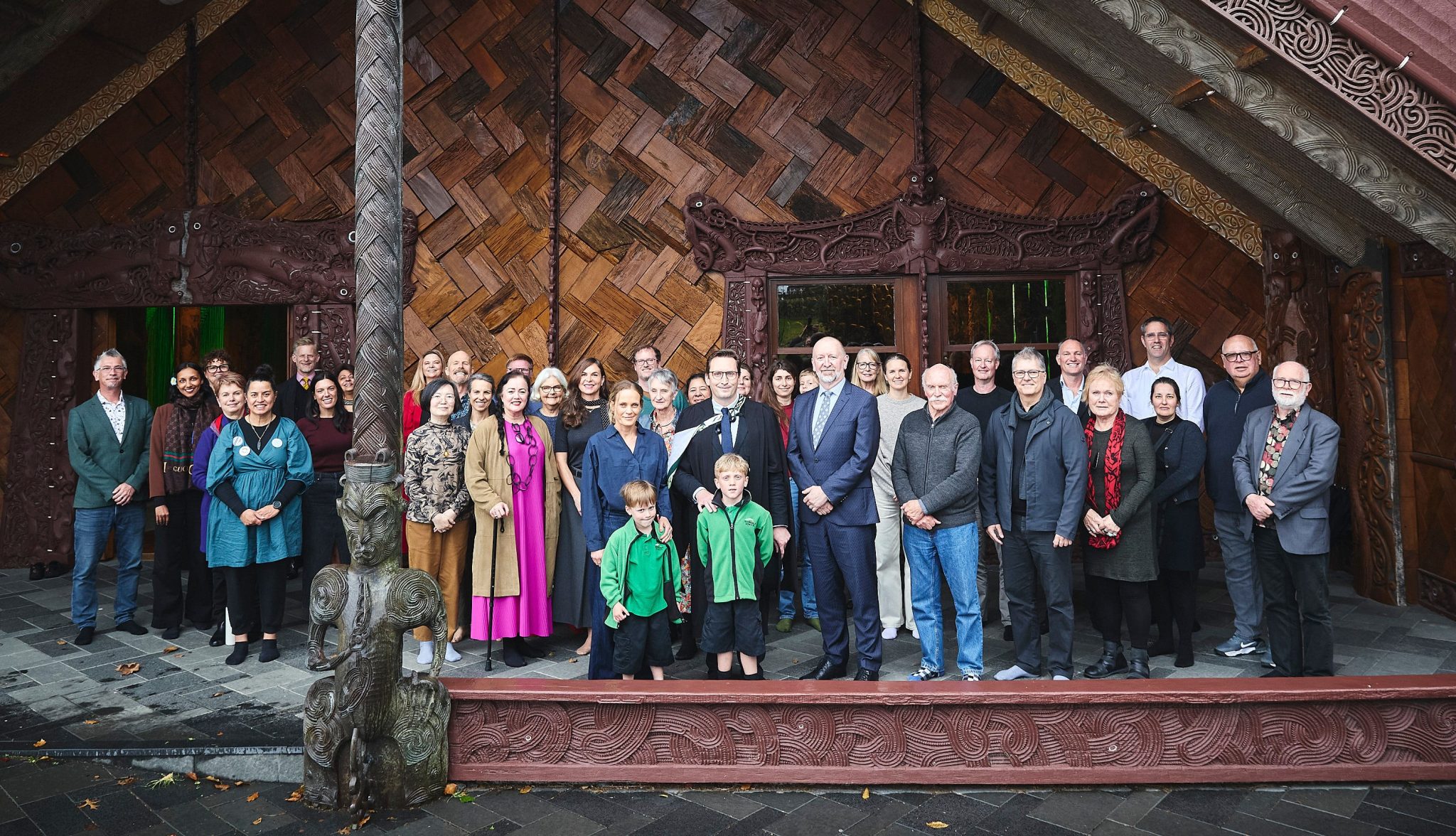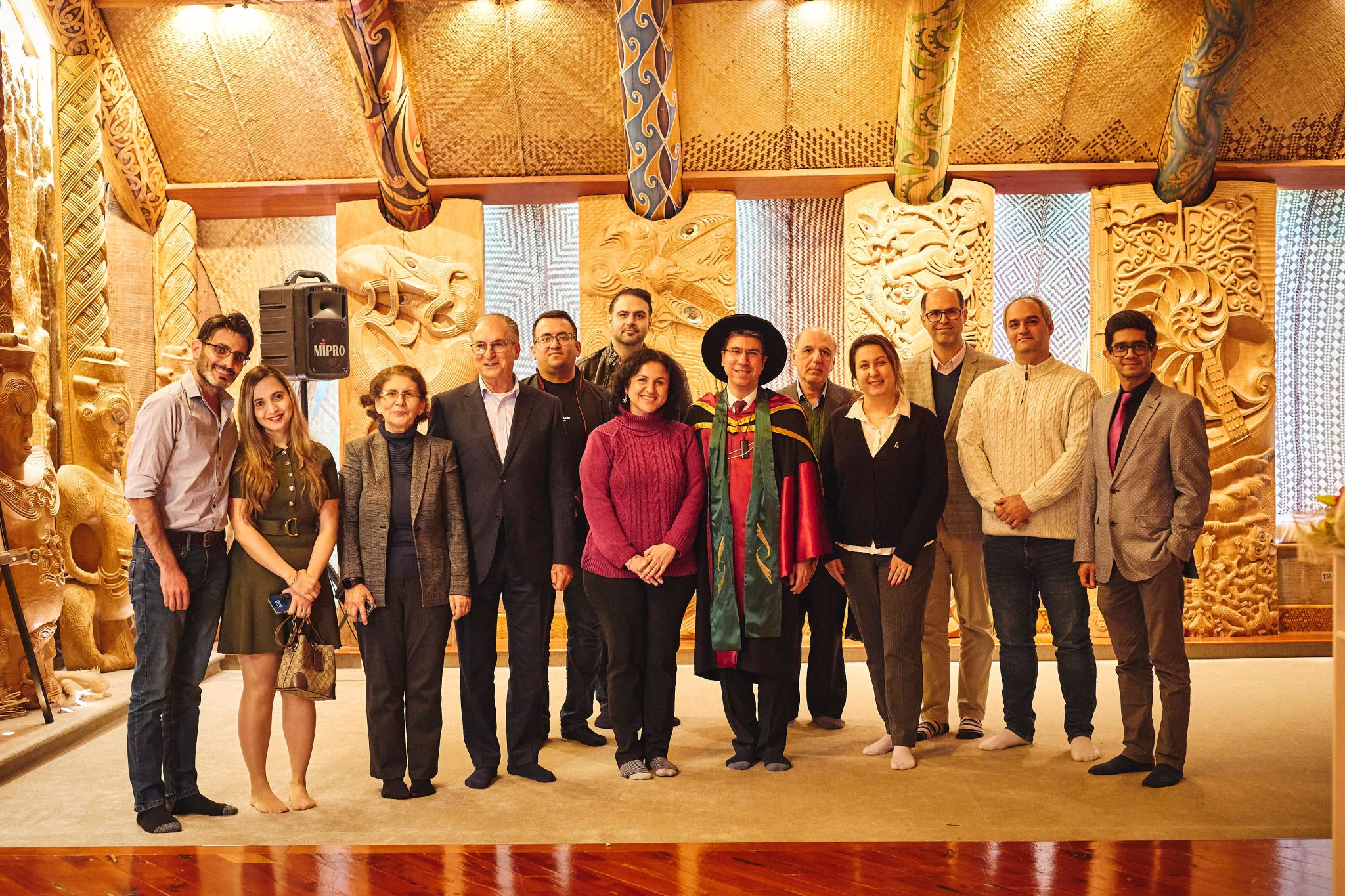Earlier this year, Unitec showcased stories of Māori innovation as it hosted the annual ITP Research Symposium. The Ka Rewa: Māori Innovation symposium was the first of these gatherings to focus on Māori innovation across all disciplines. TeUrikore Biddle, who chaired the organising committee, shares some of the reflections she delivered at the conclusion of Ka Rewa.
E ngā mana, e ngā reo, e ngā karangatanga maha, koutou ngā urupā o rātau mā, tēnā koutou katoa. I haere mai koe otirā koutou i tawhiti, i tata nō reira nau piki mai, nau kake mai ki roto i te poho o Ngākau Māhaki ki Te Whare Wānanga o Wairaka.
My talk today is a reflective piece – an opportunity to breathe, and take in all we have accomplished together as an ITP (Institutes of Technology and Polytechnics) whānau in partnership with Māori organisations, businesses, community groups and our students in the lead-up to the Ka Rewa: Māori Innovation symposium 2018.
I have framed my presentation on two main themes:
- The proverbial saying developed for the symposium, which is “Ko te kāhu te whakaoranga o te pitomata – tukuna kia rere”. “The kāhu is symbolic of our potential – so let it soar.”
- Unitec’s partnership agreement with Māori, known as Te Noho Kōtahitanga. Te Noho Kōtahitanga has five principles: Ngākau Māhaki, Nohotahi, Kaitiakitanga, Wakaritenga, Rangatiratanga.
The kāhu is symbolic of our potential – so let it soar
Over the past two days, we have seen huge potential – and not just potential, but activation of that potential in a range of places and spaces. So I want to acknowledge those of you who have presented, and commend my academic colleagues and our business partners for co-presenting with students. We are growing the very potential our proverbial saying is referring to, and if the work and ideas they shared is anything to go by, the future is bright!
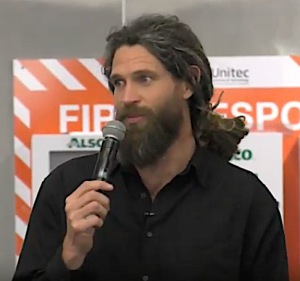
Pānapa Ehau speaks about overcoming environmental and economic challenges through a grassroots approach.
There is potential in our ability to co-create, share and deliver curricula within the ITP sector – but also, as we heard from Māori Television’s Keith Ikin, there is potential to continue to work with industry. We have very similar challenges in that we both need to reach a target audience, connect with the people, and ensure what we are developing is relevant and of value to our stakeholders. Even in our challenges, there exists potential to change, to develop, to adapt to an ever-changing environment.
We saw in Pānapa Ehau’s presentation the grassroots approach Hikurangi Enterprises is taking to overcoming environmental and economic challenges. We also understood the potential of a motivated group of just five individuals, determined to develop what could be a huge business opportunity in small towns such as Ruatoria.
In every presentation, that potential is not some far-off idea, but something that is being activated. It is being realised in the small and great contributions we make to our respective disciplines, and our connectiveness with industry.
We are richer and more inspired to continue our work because of the potential that lives in what we often see as ‘business as usual’. I encourage you all to continue to rise above the challenges we face on a daily basis, and allow yourself to be sustained by the creative, innovative ideas that exist within your work.
Rangatiratanga (authority and responsibility)
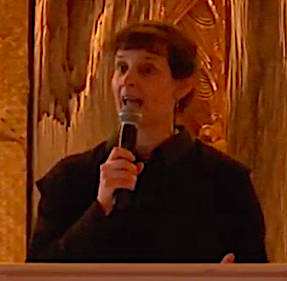
Unitec’s Interin Chief Executive, Merran Davis, welcomes participants to Ka Rewa.
Our Interim Chief Executive Merran Davis mentioned in her opening address the partnership agreement Te Noho Kōtahitanga. Within this partnership agreement between Unitec and Māori, there are five principles: Ngākau Māhaki, Nohotahi, Kaitiakitanga, Wakaritenga, Rangatiratanga.
Rangatiratanga is often used to denote autonomy and leadership, or to bring groups of people together towards a common goal or purpose. When done well, collaboration with others can lead to gratifying outcomes. The Ka Rewa: Māori Innovation symposium was another opportunity for Unitec to demonstrate capability in our engagement with te ao Māori and mātauranga Māori.
This year’s ITP Research Symposium provided an opportunity to focus on Māori innovation, to connect those in our sector, to showcase the leadership that each of our presenters is providing to their discipline. Throughout the symposium, we demonstrated how we are all leaders in our own right, and the importance of owning the space we’re in – in a way that keeps staff, their kaupapa and our students safe. Encourage each other to be bold enough to make a stand for what is tika and pono.
Professor Linda Waimarie Nikora, researcher and academic, is also the co-director of Ngā Pae o Te Māramatanga, New Zealand’s Māori Centre of Research Excellence (Ngā Pae). She provided food for thought, asking the forum to consider what sort of world we’re preparing our tauira for, and what this means for Māori leadership in the future. As educational providers, we understand we can make a significant contribution to preparing tomorrow’s leaders: transformation through education.
Ngā Pae sponsors a number of projects that value mātauranga Māori, and connect experts in collaborative projects. This provides the opportunity to engage in a meaningful way with our community, and create pathways that support whānau, hapū and iwi aspirations for self-autonomy. We can determine our own futures as lensed through a Māori world view, upheld by shared Māori values and principles with positive outcomes for Māori.
Arguably, our students engage in various phases of rangatiratanga. For instance, their decision to study. In 2017 and 2018, Māori students at Unitec made up approximately 12% of West Auckland’s total student population. This is proportionate to the Māori population living in our traditional catchment area: Auckland central and West Auckland.
Another way rangatiratanga is realised is through Māori students’ completion of their qualifications at L1-L8. We strive to ensure our graduates leave Unitec work-ready, and gain employment in health, trade and business, which are among New Zealand’s areas of greatest demand for employment.
Nohotahi (co-operation)
Presenters from Otago Polytechnic provided much inspiration. Kelli Te Maihāroa, Director of Māori Research, and Tumuaki Te Kāhui Whetū, and their student and staff colleagues, presented Te Kāhui Whetū: Māori Learners Flourishing as Māori. They outlined a suite of programmes that contributed towards Māori learners flourishing and succeeding as Māori.
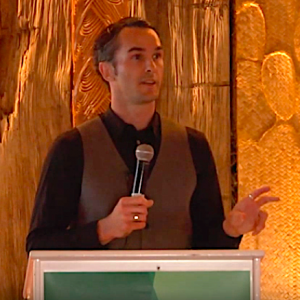
Brook Grant speaks at Ka Rewa, the 2018 ITP Research Symposium.
At Otago Polytechnic, more than 20% of Capable NZ learners are Māori, and the presentation highlighted some of the innovative reasons for their programme and student success. One reason is the programme’s kaupapa Māori approach and work-based pedagogy. Māori students identified these aspects of the programme as beneficial to their learning journey.
The Unitec marae, aptly named Te Noho Kōtahitanga, bought us all together to celebrate some exciting projects, growth and development from across the sector. Brook Grant, Management Consultant at GHA and an independent financial commentator, provided the context for the significant Māori contribution to the economy. “With more than $15 billion of assets and investments currently under management by Māori collectives, and the size of the Māori economy estimated at more than $50 billion and growing quickly, iwi and Māori groups have a substantial – and increasing – economic power base.”
Nohotahi gives us an opportunity to share best practice, innovate and remain responsive to the needs of our internal and external stakeholders. We want to build a workforce with skills and knowledge that meet the need of their chosen field of study or professional practice. We also expect that we deliver an enjoyable, rich and deep learning experience for our students.
We must continue to practice Nohotahi – working together, collaboration. It is imperative that we, like Māori Television, are reflective in our practice, honest about what we are good at and what we need to work more on, and courageous enough to make bold changes to ensure we remain relevant and have a clear purpose.
Must we be expert at everything? Are we willing to recognise the potential for sharing curriculum delivery? What new teaching, learning and research approaches do we need to account for during programme or course design? How can we be more responsive to the needs of our stakeholders?
The second and final part of TeUrikore Biddle’s reflections on Ka Rewa will be posted in early 2019.
To watch footage of other Ka Rewa speakers, visit Unitec’s ePress YouTube channel.
